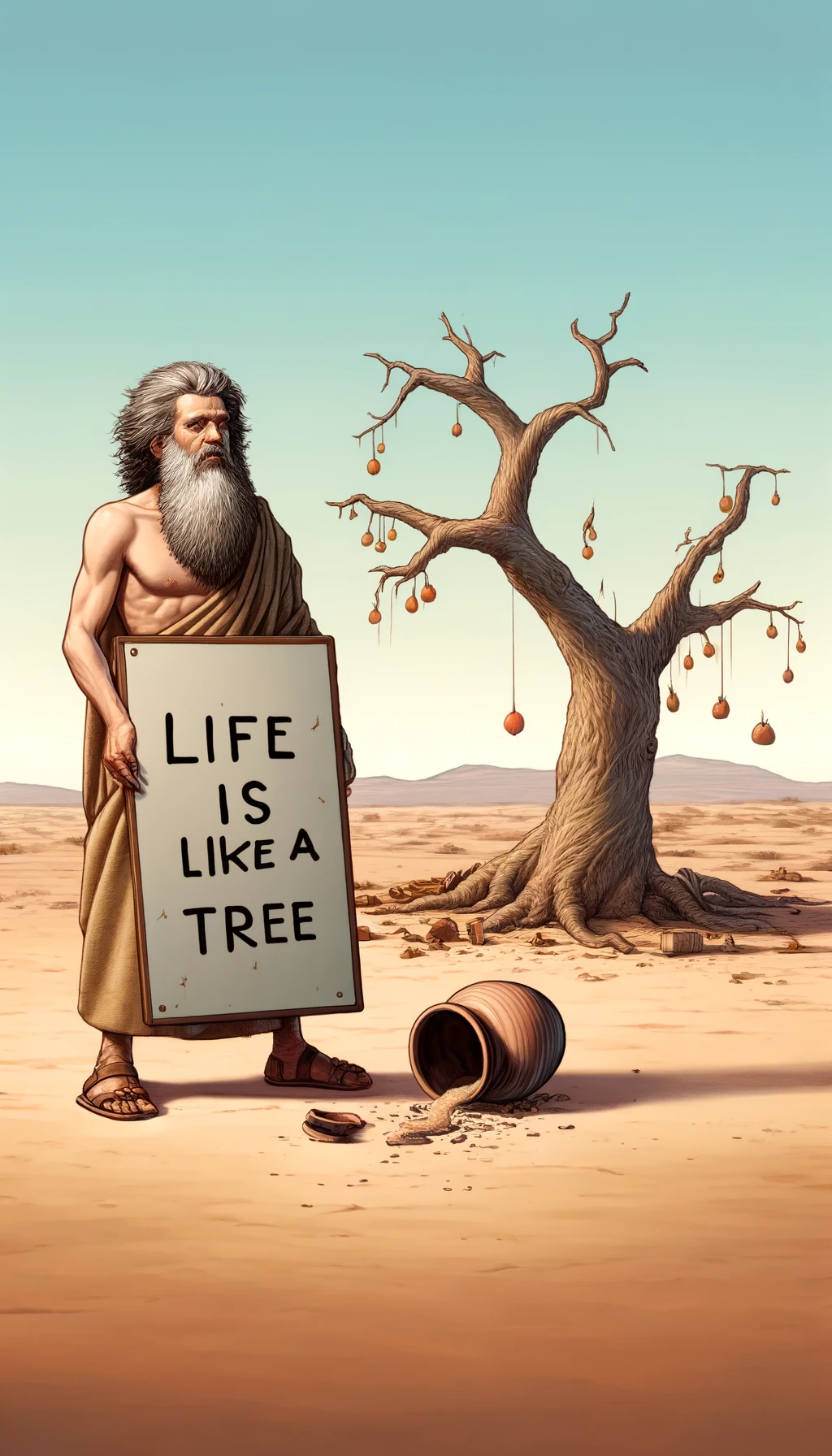Okay, so the Prophetic books in Scripture are both awesome and awfully difficult to understand. They have a pesky habit of preaching under divine inspiration about events that they never explain… they didn’t need to; their original audience already knew all about it.
Another difficulty that plagues their pages is an element of good poetry—various figures and imagery. The prophets make wonderfully subtle references to common cultural elements of their own world. Since they shared this world with their original audience, their first hearers or readers got it. We, however, live in a different world altogether.
This is not to suggest that our souls are different, that our humanity is different, that our struggles are different… for they are not (See Getting Isaiah, Part 1: The Problem With Getting Isaiah) but it is to suggest that their way of life, the details of almost every aspect of their existence is far removed from ours. One can hardly name a single modern convenience to which they had access. They had the wheel, yes, but not bikes… clothes… yes, but not pants. Men might have thought their “stoves” were self-cleaning but their women knew differently. Indeed, these ladies spent large amounts of time just gathering enough wood to cook dinner.
This does not, however, suggest that ancient people were stupid, incapable of complex thoughts or highly complex systems of social interaction. They were not.
In the prophets, however, all the complex elements of their interactions and work are often concealed in marvelously poetic fashion… thus, seemingly impenetrable to us.[1]
Let me illustrate.
Isaiah 4:1 says, And seven women shall take hold of one man in that day, saying, “We will eat our own bread and wear our own clothes, only let us be called by your name; take away our reproach.”
The general context describe a situation in which the wars swallowing up the land will leave a radical imbalance in numbers between men and women. That’s easy.
Does, “shall take hold of” have more to it than a desperate appeal? Yes.
The grasping of garment hems in the ancient world was a special form of request that had powerful almost irresistible social power. To grab a person’s hem was to bring yourself under their care and responsibility and the person whose hem was grabbed was obligated, if he had the power to do so, to meet whatever was asked of him.[2]
What is the nature of the promise to eat their own bread and wear their own clothes?
The full weight of this drives the point home about the desperation of these women. In a world where women frequently outnumbered men, and where “producers” became shelter and support for those attached to them who could not “produce,” polygamy was common. There were rules for it, however. It wasn’t designed to be a system by which men got their jollies bedding a lot of women with impunity, but was a system by which those with the means to carry more, took responsibility for more. A man was not supposed to marry more women unless he had the means to support them all. He was not supposed to diminish Food, Clothes, or Conjugal rights when he added women to his household… ummm… Yes, conjugal means sex. Children (particularly sons who would grow up to be producers) were a woman’s greatest safety net in the ancient world. Husbands might divorce, but kids would always do their best to take care of Mamma.
So, what did these women say? They recognized that the dire circumstances of the men who remained in the land made the responsibility to take on more women unsustainable. Thus, these women were willing to make marriage contracts that flew in the face of custom; they were willing for sign away all their rights to food and clothing if only he would….
Would what? They say, “let us be called by your name; take away our reproach.” Called by your name is nice… basically, marries us and make honest women out of us. Reproach seems a harsh word, though. Well… we may not like it, but barren women and women of ill repute had reason to hang their heads in the ancient world. Indeed, having children in this culture was so important for these women that they would gladly forsake not only a one on one romantic connection with their man, but would forgo all normal social rights that they had to get legitimate children.
And all this, from just one little verse in Isaiah. Digesting the import of the poetic glory of prophets takes work.
Now, how does one begin? I recommend in addition to getting a good Bible Dictionary in which you might look up key words and discover previous undreamed details about the life of these ancient peoples, that one also consider getting a good Bible backgrounds commentary whose focus is to fill the reader in on these kinds of details.
My favorite is The Zondervan Illustrated Bible Background Commentaries of the Old and New Testaments.[3] They aren’t cheap, but they are wonderful and can help you penetrate the seeming darkness of the Prophet’s poetry.
[1] For a lengthy example, see my post, “Though Your Sins be Made White as Snow, You Still Might Goof Isaiah 1:18…” parts 1, 2 & 3.
[2] See “Getting Out the Pagan Within…” Parts 1, 2 & 3. See also my lecture link in Historical Hermeneutics and Saul’s Grabbing of Samuel’s Hem in 1 Samuel 15:23-31
[3] New Testament (http://www.amazon.com/Zondervan-Illustrated-Bible-Backgrounds-Commentary/dp/0310217407/ref=sr_1_1?s=books&ie=UTF8&qid=1424379845&sr=1-1&keywords=zondervan+illustrated+bible+backgrounds+commentary) Old Testament (http://www.amazon.com/Zondervan-Illustrated-Bible-Backgrounds-Commentary/dp/0310255724/ref=sr_1_2?s=books&ie=UTF8&qid=1424379845&sr=1-2&keywords=zondervan+illustrated+bible+backgrounds+commentary).
Discover more from Biblical Literacy with Dr. Andrew D. Sargent
Subscribe to get the latest posts sent to your email.



